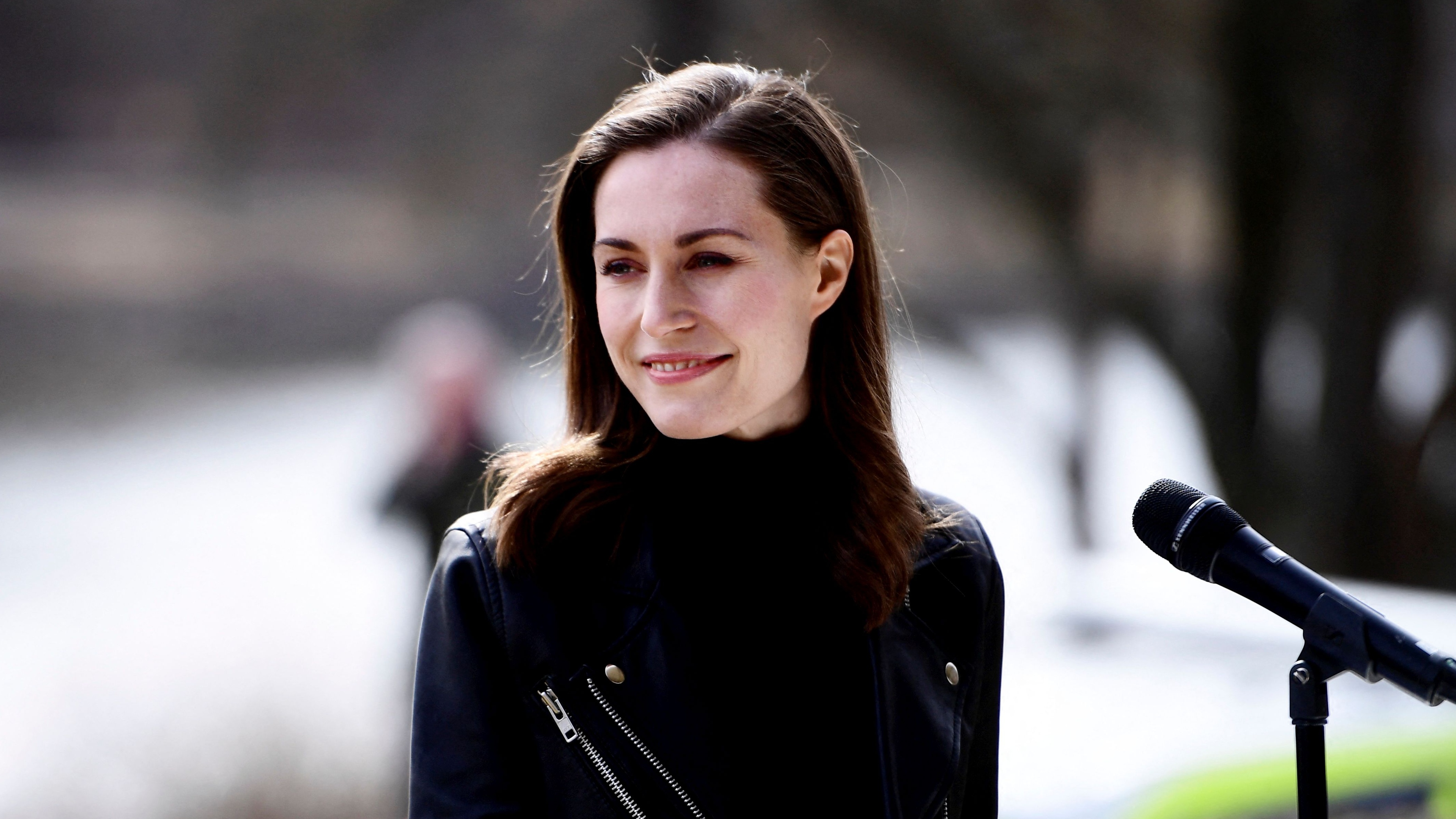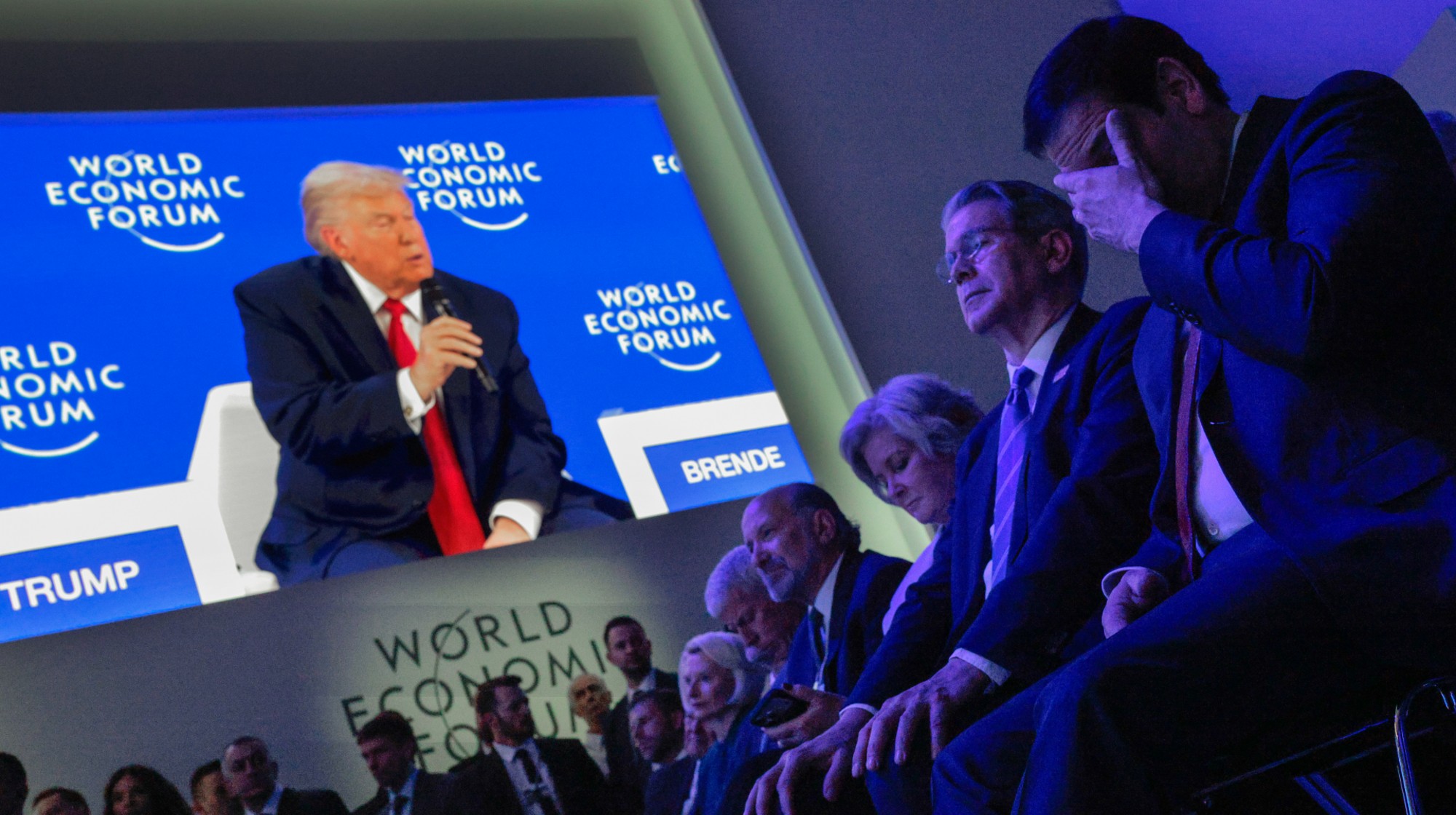How Finland joining Nato could tip the balance of power
Helsinki formally declares intention to join military alliance

A free daily email with the biggest news stories of the day – and the best features from TheWeek.com
You are now subscribed
Your newsletter sign-up was successful
Finland has confirmed its intention to join Nato, signifying a historic policy shift that could radically redraw Europe’s security landscape.
Announcing the end of a century-long policy of military non-alignment, President Sauli Niinistö yesterday said “the president and the government’s foreign policy committee have agreed that after consulting parliament, Finland will apply for Nato membership”.
“A new era is opening,” he said. “A protected Finland is being born as part of a stable, strong and responsible Nordic region. We gain security, and we also share it. It’s good to keep in mind that security isn’t a zero-sum game.”
The Week
Escape your echo chamber. Get the facts behind the news, plus analysis from multiple perspectives.

Sign up for The Week's Free Newsletters
From our morning news briefing to a weekly Good News Newsletter, get the best of The Week delivered directly to your inbox.
From our morning news briefing to a weekly Good News Newsletter, get the best of The Week delivered directly to your inbox.
Welcome aboard
Finland shares an 810-mile border with Russia and has historically “stayed out of Nato to avoid antagonising its eastern neighbour”, said the BBC. But the invasion of Ukraine has triggered “a profound change” in the countries’ thinking, The Guardian reported.
An opinion poll in early May found that 76% of Finns supported joining Nato and 12% were against – revealing “a big swing towards membership” since Vladimir Putin gave the order for the Ukraine invasion, the BBC said.
Sweden also revealed plans to apply. “The best thing for the security of Sweden and the Swedish people is to join Nato,” Prime Minister Magdalena Andersson told a press conference. “We believe Sweden needs the formal security guarantees that come with membership in Nato.”
The admission process for both countries is likely to go ahead “quite quickly”, the alliance’s Secretary-General Jens Stoltenberg said last week.
A free daily email with the biggest news stories of the day – and the best features from TheWeek.com
This assessment was echoed by five diplomats and officials, according to Reuters. The unnamed insiders reportedly described how Russia’s attack on Ukraine had forced “a radical rethink of European security”.
They told the news agency that during the one-year ratification of Finland and Sweden’s membership, Nato would increase its “troop presence in the Nordic region, hold more military exercises and naval patrols in the Baltic Sea and possibly rotate US and British forces” through the two new member countries.
Strengthened flank
Like Finland’s current leaders, former PM Alexander Stubb has argued that admitting his country would strengthen Nato and “maximise security in Europe”.
Finland has always been a vocal supporter of “defence cooperation in the EU”, Stubb wrote in an article for the Financial Times. And the country is “an ideal security asset for the alliance”, as possessor of “one of the largest artilleries, best intelligence and most sophisticated cyber capabilities in Europe”.
BBC security correspondent Frank Gardner agreed that Finland fulfils all of the criteria for membership, as a “modern” and “democratic” nation.
Some preliminary “military integration” was already under way with Nato member states, continued Gardner, who noted that “British tank crews recently went on exercise with a Finnish armoured brigade, together with US, Latvian and Estonian troops”.
From a “military perspective”, Finland’s admission would “be a major boost to Nato’s defensive power in the north of Europe, where it is massively outnumbered by Russia’s forces”. And geographically, it “fills in a huge gap” in the alliance’s line of defence, he added.
Foreign Policy senior correspondent Michael Hirsh argued that Finland’s decision to join Nato “could tilt the balance against Putin” for good.
Aside “from losing Ukraine”, Hirsh said, Helsinki choosing to abandon its “post-Cold War policy on non-alignment” is the Russian president’s “worst nightmare”.
In other words, Finland could be set to “hand Putin his biggest defeat yet”.
Sabre rattling
Putin’s spokesperson Dmitry Peskov warned last month that Moscow would seek to “rebalance the situation” with its own measures if Finland and Sweden joined Nato.
Peskov declined to say what Russia’s response might entail. But Dmitry Medvedev, the deputy chair of Russia’s Security Council, later warned in a post on Telegram that Russia might end “talk of any nuclear-free status for the Baltics”.
Niinistö spoke with Putin on Saturday to inform him of his country's decision to join Nato. The Finnish president described the conversation as direct, straightforward and cool. “The surprise was he took it so calmly.”
Putin reportedly responded to Niinistö’s call by saying Nato membership “would be a mistake, since there is no threat to Finland’s security”, according to a readout of the call released by the Kremlin.
Finland joining the alliance is a “strategic debacle” for the Kremlin, said The Times’ Berlin correspondent Oliver Moody. The Ukraine invasion was part of Putin’s push to dissuade further expansion of the alliance, yet Russia could end up with “Nato soldiers scarcely 100 miles from St Petersburg”, the president’s home city.
The risk, said the BBC’s Gardner, is that “such a major expansion of Nato, right on Russia's doorstep, alarms and enrages the Kremlin so much that it responds by lashing out in some form”.
Putin already blames Nato for “thwarting” his plan “to take over Ukraine”, Gardner added. If the Kremlin now decides that “this sudden expansion” represents “an existential threat to Russia’s security then there is no knowing exactly what Moscow could do in response”.
Whatever the president’s original goals, said Stubb in the Financial Times, Finland’s Nato admission “will go down as Putin’s enlargement. Without Russia’s attack on Ukraine, “it would not have happened”.
That “tactical and strategic blunder was the tipping point”, the former PM wrote, and showed Finns that “if Putin can slaughter his Slav brothers and sisters in Ukraine, there is nothing that stops him from doing the same elsewhere”.
-
 Political cartoons for February 12
Political cartoons for February 12Cartoons Thursday's political cartoons include a Pam Bondi performance, Ghislaine Maxwell on tour, and ICE detention facilities
-
 Arcadia: Tom Stoppard’s ‘masterpiece’ makes a ‘triumphant’ return
Arcadia: Tom Stoppard’s ‘masterpiece’ makes a ‘triumphant’ returnThe Week Recommends Carrie Cracknell’s revival at the Old Vic ‘grips like a thriller’
-
 My Father’s Shadow: a ‘magically nimble’ film
My Father’s Shadow: a ‘magically nimble’ filmThe Week Recommends Akinola Davies Jr’s touching and ‘tender’ tale of two brothers in 1990s Nigeria
-
 What happens now that the US-Russia nuclear treaty is expiring?
What happens now that the US-Russia nuclear treaty is expiring?TODAY’S BIG QUESTION Weapons experts worry that the end of the New START treaty marks the beginning of a 21st-century atomic arms race
-
 Epstein files topple law CEO, roil UK government
Epstein files topple law CEO, roil UK governmentSpeed Read Peter Mandelson, Britain’s former ambassador to the US, is caught up in the scandal
-
 Iran and US prepare to meet after skirmishes
Iran and US prepare to meet after skirmishesSpeed Read The incident comes amid heightened tensions in the Middle East
-
 Israel retrieves final hostage’s body from Gaza
Israel retrieves final hostage’s body from GazaSpeed Read The 24-year-old police officer was killed during the initial Hamas attack
-
 China’s Xi targets top general in growing purge
China’s Xi targets top general in growing purgeSpeed Read Zhang Youxia is being investigated over ‘grave violations’ of the law
-
 Ukraine, US and Russia: do rare trilateral talks mean peace is possible?
Ukraine, US and Russia: do rare trilateral talks mean peace is possible?Rush to meet signals potential agreement but scepticism of Russian motives remain
-
 Panama and Canada are negotiating over a crucial copper mine
Panama and Canada are negotiating over a crucial copper mineIn the Spotlight Panama is set to make a final decision on the mine this summer
-
 Trump backs off Greenland threats, declares ‘deal’
Trump backs off Greenland threats, declares ‘deal’Speed Read Trump and NATO have ‘formed the framework for a future deal,’ the president claimed